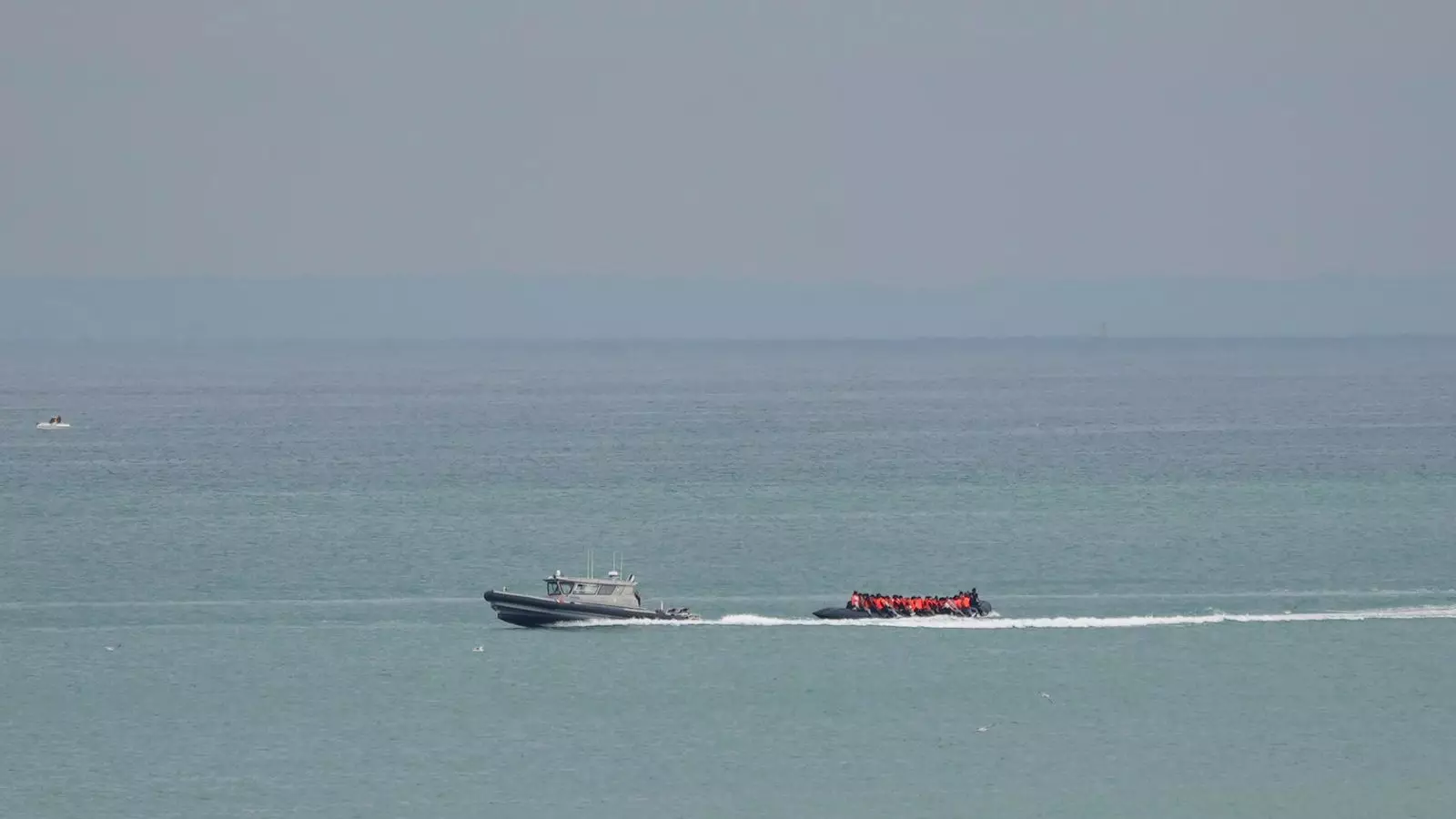The Mediterranean Sea isn’t the only body of water claiming migrant lives. Recent events off the coast of France have highlighted the perilous journey many undertake as they attempt to cross the English Channel into the UK. Tragically, eight migrants lost their lives in a desperate attempt to reach safety one fateful night near Ambleteuse in the Pas-de-Calais region. Their death underscores a broader crisis regarding migration, where individuals risk everything for the hope of a better life, often facilitated by ruthless smuggling networks. The reported rescue of 45 survivors from this tragedy offers a glimmer of hope but starkly reminds us of the dangers that pervade these crossings.
Surge in Rescue Operations
The spike in migration efforts across the English Channel has triggered intensified search and rescue operations by French authorities. In a span of just 24 hours, rescue efforts netted around 200 individuals, further emphasizing the immediate dangers faced by those attempting to seek asylum. The conditions of the boats, described as dilapidated by officials, raise alarm bells regarding the desperate states these individuals find themselves in and the lengths they will go to escape persecution or dire circumstances in their home countries.
In addition to recent tragedies, rescue initiatives have become commonplace as migrants are frequently spotted in distress. Reports indicate that multiple rescue operations took place off the coast of Calais recently, illustrating the magnitude of the crisis. While rescuers strive to save lives, the ongoing frequency of these incidents highlights a systemic issue that transcends mere statistics or rescue efforts—namely, the inadequacy of safe pathways for migrants seeking refuge.
The complexities surrounding the migrant crisis call for a multifaceted response from governments, both in the UK and France. Foreign Secretary David Lammy’s comments reflect a growing sense of urgency regarding the need to tackle human smuggling organizations while acknowledging the grim realities faced by migrants. The UK government’s contentious “smash the gangs” strategy is met with skepticism. Activists argue that a security-heavy approach often exacerbates the situation, leaving desperate individuals with no choice but to rely on dangerous smugglers for passage.
Amnesty International UK’s Steve Valdez-Symonds has called for a change in perspective. He posits that the lack of safe and legal asylum routes directly contributes to the perilous choices migrants make. This controversy resurrects questions about international responsibility and the need for collaborative efforts in addressing these challenges. The growing death toll, with over 30 individuals perishing while attempting to cross the Channel this year alone, serves as an urgent call to action.
The hallmarks of this migration crisis extend beyond numbers. The loss of life is not simply a statistic; it represents dreams shattered and families torn apart. Just weeks prior to the recent incident, another tragedy claimed the lives of at least 12 migrants, further accentuating the urgency of the current situation. With more than 21,000 individuals attempt to cross the Channel from January to September alone, it is clear that the crisis is escalating.
Tragedies like these urge all involved to recognize the humanitarian aspects of migration. While the causes of mass migration are complex—encompassing war, poverty, and human rights abuses—the responses must also evolve away from punitive measures towards solutions that prioritize safety and dignity.
The chilling statistics of migrant fatalities may continue to rise unless both the French and UK governments begin to examine the underlying issues driving these perilous crossings. Establishing safer, legal routes for asylum seekers must become a priority, as the current reliance on smugglers continues to pave the way for heartache and loss.
The devastating events off the coast of France should serve as a catalyst for change in how we approach the migrant crisis. The recognition of the humanity behind the statistics is essential. Only through a united, compassionate response can we hope to reduce the mortality rate associated with these crossings and prevent future tragedies on the high seas.

Leave a Reply